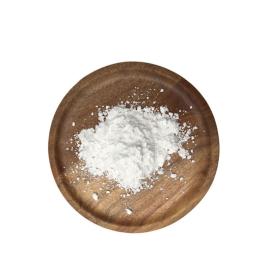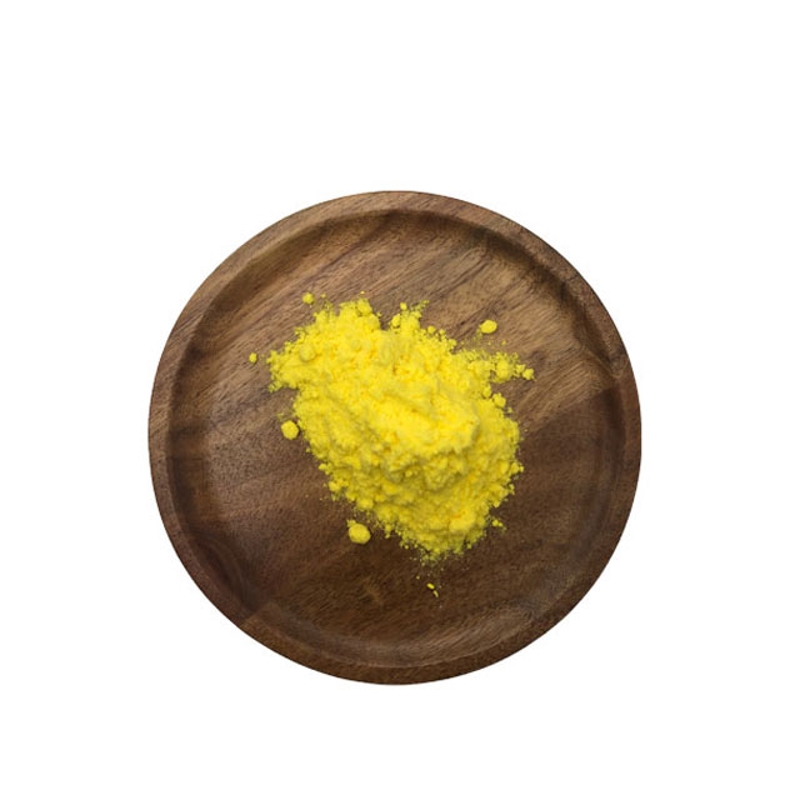-
Categories
-
Pharmaceutical Intermediates
-
Active Pharmaceutical Ingredients
-
Food Additives
- Industrial Coatings
- Agrochemicals
- Dyes and Pigments
- Surfactant
- Flavors and Fragrances
- Chemical Reagents
- Catalyst and Auxiliary
- Natural Products
- Inorganic Chemistry
-
Organic Chemistry
-
Biochemical Engineering
- Analytical Chemistry
- Cosmetic Ingredient
-
Pharmaceutical Intermediates
Promotion
ECHEMI Mall
Wholesale
Weekly Price
Exhibition
News
-
Trade Service
There are a huge number of microorganisms in the human body, most of which are located in the intestine, which can affect human health through interaction with the immune system and regulate the occurrence of many diseases such as cardiovascular disease, diabetes, inflammatory bowel disease, and cancer.
Uncovering the secrets of symbiotic microorganisms and using beneficial microorganisms to develop new treatments is an important task in the current health and medical fields.
Colon cancer is the third largest cancer in the world, with about 1.
8 million new cases every year, and acute and chronic intestinal inflammation is one of the main factors leading to colon cancer.
Metagenomic sequencing has confirmed that a variety of intestinal flora is related to the occurrence or prevention of colon cancer, but a single strain with protective functions is rarely found.
On April 23, 2021, the team of Professor Rongfu Wang from the Keck School of Medicine of the University of Southern California published a research paper entitled: Microbiota regulate innate immune signaling and protective immunity against cancer in the journal Cell Host & Microbe.
Team members Xing Changsheng, Dr.
Wang Mingjun, etc.
established a mouse strain (Tak1flox/flox; Lyz2-Cre+, Tak1ΔM/ΔM for short) that effectively resists intestinal inflammation and colon cancer, and identified a single protective strain Odoribacter splanchnicus (visceral odor).
Aerobacterium), and verified its key role in inducing immunosuppressive Th17 cells.
The main points of this new research are as follows: 1.
Discovery of anti-cancer mouse models.
After myeloid knockout TAK1, mice can survive 100% in the colitis model induced by high concentration of DSS, and there is almost no obvious tumor in the AOM/DSS colon cancer model (only few tumors are generated in some individuals).
Compared to most mouse strains that are more sensitive than wild-type, this is the only mouse model that can completely resist colitis and colon cancer so far.
2.
The function of specific intestinal flora.
16S sequencing found that the intestinal flora of Tak1ΔM/ΔM mice was significantly different from that of the control group.
Tak1ΔM/ΔM mice treated with antibiotics will lose their resistance to disease models while losing their intestinal flora.
On the contrary, by transplanting the intestinal flora of Tak1ΔM/ΔM mice, wild-type mice can obtain resistance to colitis and colon cancer.
3.
Innate immune signals and the mediation of Th17 cells.
In Tak1ΔM/ΔM mice, IL-1β and IL-6 levels were significantly increased, accompanied by a surge in the number of intestinal Th17 cells.
Deficiency of IL-1R1 or IL-6 can lead to a decrease in the number of Th17 cells in Tak1ΔM/ΔM mice, accompanied by loss of resistance to inflammation and colon cancer.
Knockout of RORγt can specifically inhibit IL-17A secretion, interfere with the differentiation of Th17 cells, and also make Tak1ΔM/ΔM mice lose resistance to diseases.
Injecting Th17 cells sorted from the intestine of Tak1ΔM/ΔM mice into wild-type mice can produce a certain degree of protection.
4.
Identification of a single protected strain.
Through metagenomic sequencing, highly enriched strains in Tak1ΔM/ΔM mice were identified and functionally tested in wild-type mice.
Among them, the most abundant Odoribacter splanchnicus can induce Th17 cell differentiation in normal and sterile mice, and has a significant protective effect on colitis and colon cancer.
In summary, this study verified the important role of intestinal flora, innate immune signals, and intestinal Th17 cells in colon cancer through in-depth analysis of the Tak1ΔM/ΔM anti-cancer mouse model, and identified the protective The functional single strain provides new ideas for the prevention and treatment of intestinal inflammation and colon cancer.
Professor Rongfu Wang from Keck School of Medicine of the University of Southern California is the corresponding author of this article, and Dr.
Changsheng Xing is the first author.
The link to the paper: https://doi.
org/10.
1016/j.
chom.
2021.
03.
016 2020 hot articles selection 1.
Cup! A full paper cup of hot coffee, full of plastic particles.
.
.
2.
Scientists from the United States, Britain and Australia “Natural Medicine” further prove that the new coronavirus is a natural evolution product, or has two origins.
.
.
3.
NEJM: Intermittent fasting is right The impact of health, aging and disease 4.
Heal insomnia within one year! The study found that: to improve sleep, you may only need a heavy blanket.
5.
New Harvard study: Only 12 minutes of vigorous exercise can bring huge metabolic benefits to health.
6.
The first human intervention experiment: in nature.
"Feeling and rolling" for 28 days is enough to improve immunity.
7.
Junk food is "real rubbish"! It takes away telomere length and makes people grow old faster! 8.
Cell puzzle: you can really die if you don't sleep! But the lethal changes do not occur in the brain, but in the intestines.
.
.
9.
The super large-scale study of "Nature Communications": The level of iron in the blood is the key to health and aging! 10.
Unbelievable! Scientists reversed the "permanent" brain damage in animals overnight, and restored the old brain to a young state.
.
.
Uncovering the secrets of symbiotic microorganisms and using beneficial microorganisms to develop new treatments is an important task in the current health and medical fields.
Colon cancer is the third largest cancer in the world, with about 1.
8 million new cases every year, and acute and chronic intestinal inflammation is one of the main factors leading to colon cancer.
Metagenomic sequencing has confirmed that a variety of intestinal flora is related to the occurrence or prevention of colon cancer, but a single strain with protective functions is rarely found.
On April 23, 2021, the team of Professor Rongfu Wang from the Keck School of Medicine of the University of Southern California published a research paper entitled: Microbiota regulate innate immune signaling and protective immunity against cancer in the journal Cell Host & Microbe.
Team members Xing Changsheng, Dr.
Wang Mingjun, etc.
established a mouse strain (Tak1flox/flox; Lyz2-Cre+, Tak1ΔM/ΔM for short) that effectively resists intestinal inflammation and colon cancer, and identified a single protective strain Odoribacter splanchnicus (visceral odor).
Aerobacterium), and verified its key role in inducing immunosuppressive Th17 cells.
The main points of this new research are as follows: 1.
Discovery of anti-cancer mouse models.
After myeloid knockout TAK1, mice can survive 100% in the colitis model induced by high concentration of DSS, and there is almost no obvious tumor in the AOM/DSS colon cancer model (only few tumors are generated in some individuals).
Compared to most mouse strains that are more sensitive than wild-type, this is the only mouse model that can completely resist colitis and colon cancer so far.
2.
The function of specific intestinal flora.
16S sequencing found that the intestinal flora of Tak1ΔM/ΔM mice was significantly different from that of the control group.
Tak1ΔM/ΔM mice treated with antibiotics will lose their resistance to disease models while losing their intestinal flora.
On the contrary, by transplanting the intestinal flora of Tak1ΔM/ΔM mice, wild-type mice can obtain resistance to colitis and colon cancer.
3.
Innate immune signals and the mediation of Th17 cells.
In Tak1ΔM/ΔM mice, IL-1β and IL-6 levels were significantly increased, accompanied by a surge in the number of intestinal Th17 cells.
Deficiency of IL-1R1 or IL-6 can lead to a decrease in the number of Th17 cells in Tak1ΔM/ΔM mice, accompanied by loss of resistance to inflammation and colon cancer.
Knockout of RORγt can specifically inhibit IL-17A secretion, interfere with the differentiation of Th17 cells, and also make Tak1ΔM/ΔM mice lose resistance to diseases.
Injecting Th17 cells sorted from the intestine of Tak1ΔM/ΔM mice into wild-type mice can produce a certain degree of protection.
4.
Identification of a single protected strain.
Through metagenomic sequencing, highly enriched strains in Tak1ΔM/ΔM mice were identified and functionally tested in wild-type mice.
Among them, the most abundant Odoribacter splanchnicus can induce Th17 cell differentiation in normal and sterile mice, and has a significant protective effect on colitis and colon cancer.
In summary, this study verified the important role of intestinal flora, innate immune signals, and intestinal Th17 cells in colon cancer through in-depth analysis of the Tak1ΔM/ΔM anti-cancer mouse model, and identified the protective The functional single strain provides new ideas for the prevention and treatment of intestinal inflammation and colon cancer.
Professor Rongfu Wang from Keck School of Medicine of the University of Southern California is the corresponding author of this article, and Dr.
Changsheng Xing is the first author.
The link to the paper: https://doi.
org/10.
1016/j.
chom.
2021.
03.
016 2020 hot articles selection 1.
Cup! A full paper cup of hot coffee, full of plastic particles.
.
.
2.
Scientists from the United States, Britain and Australia “Natural Medicine” further prove that the new coronavirus is a natural evolution product, or has two origins.
.
.
3.
NEJM: Intermittent fasting is right The impact of health, aging and disease 4.
Heal insomnia within one year! The study found that: to improve sleep, you may only need a heavy blanket.
5.
New Harvard study: Only 12 minutes of vigorous exercise can bring huge metabolic benefits to health.
6.
The first human intervention experiment: in nature.
"Feeling and rolling" for 28 days is enough to improve immunity.
7.
Junk food is "real rubbish"! It takes away telomere length and makes people grow old faster! 8.
Cell puzzle: you can really die if you don't sleep! But the lethal changes do not occur in the brain, but in the intestines.
.
.
9.
The super large-scale study of "Nature Communications": The level of iron in the blood is the key to health and aging! 10.
Unbelievable! Scientists reversed the "permanent" brain damage in animals overnight, and restored the old brain to a young state.
.
.







